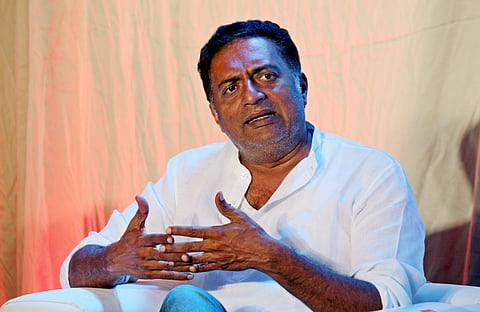

In an attempt to combat the menace of fake news, the BBC on Monday launched a project, titled "beyond fake news" in Chennai.
The project kickstarted with actor Prakash Raj releasing findings from original research into how and why disinformation is shared.
Blaming the ruling BJP, the actor said, "The country has witnessed a rise in crimes such as lynching and other violence triggered by fake news, in the last five years, after the BJP came into power. They have organized teams to "cook up" and spread fake news. Without our knowledge, they are misusing our love for a particular religion, caste, etc," he added.
"Spreading fake information is an organized crime....The biggest problem today is that the government, media houses and various other organisations are a part of this practise," he insisted.
When asked how to curb the circulation of fake news, the Gilli actor said as long as there are people who believe everything they hear, without verifying and realizing that it's an effort to distract them from the reality, there is no way this trend can be stopped. People need to understand that they are being tricked into believing something which is not true.
"I won't blame only those who spread false information. Also, those who are ready to believe it without verifying it also deserve to be blamed," he concluded.
Emphasizing on making a clear distinction between fake news and one's bias, he said, "It is a human tendency to believe in fake news. When they hear about something that they like or they know, they obviously tend to believe it."